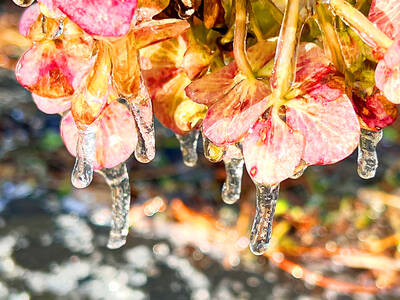Taiwan would observe the responses of other countries to the WHO’s recent classification of the artificial sweetener aspartame as “possibly carcinogenic to humans,” but would not change its regulations at this time, the Food and Drug Administration (FDA) said on Friday.
In an assessment released on Friday, the WHO said that while the sweetener had been classified as possibly carcinogenic, its consumption was still safe within a daily limit of 40mg per kilogram of a person’s body weight.
Aspartame is an artificial sweetener used mainly in Diet Coke, Pepsi Zero Sugar and other diet sodas, as well as in chewing gum, ice cream and yogurt, among other products.

Photo: AFP
At a news conference in Taipei, FDA Deputy Director Lin Chin-fu (林金富) said the agency would not change its regulations on aspartame at this time, adding that there was no need for people to alter their intake.
The agency would monitor the responses of other countries to the WHO’s classification of the artificial sweetener, Lin said.
Products in Taiwan that contain the sweetener must carry a label that says they are not suitable for people with phenylketonuria — a congenital disease in which the body cannot break down the amino acid phenylalanine — or they must indicate that phenylalanine is an ingredient, he said.
In a telephone interview with the Central News Agency on Friday, Yen Tsung-hai (顏宗海), head of the Clinical Poison Center at Linkou Chang Gung Memorial Hospital, said that the WHO’s categorization of aspartame was based on studies that showed an increase in the risk of cancer in animals, but that there was limited evidence of the sweetener causing cancer in humans.
The findings, released by the WHO’s International Agency for Research on Cancer and its Joint Expert Committee on Food Additives, identified a possible link between aspartame and a type of liver cancer called hepatocellular carcinoma, after reviewing three large human studies in the US and Europe that examined artificially sweetened beverages.

National Kaohsiung University of Science and Technology (NKUST) yesterday promised it would increase oversight of use of Chinese in course materials, following a social media outcry over instances of simplified Chinese characters being used, including in a final exam. People on Threads wrote that simplified Chinese characters were used on a final exam and in a textbook for a translation course at the university, while the business card of a professor bore the words: “Taiwan Province, China.” Photographs of the exam, the textbook and the business card were posted with the comments. NKUST said that other members of the faculty did not see

The Taipei City Government yesterday said contractors organizing its New Year’s Eve celebrations would be held responsible after a jumbo screen played a Beijing-ran television channel near the event’s end. An image showing China Central Television (CCTV) Channel 3 being displayed was posted on the social media platform Threads, sparking an outcry on the Internet over Beijing’s alleged political infiltration of the municipal government. A Taipei Department of Information and Tourism spokesman said event workers had made a “grave mistake” and that the Television Broadcasts Satellite (TVBS) group had the contract to operate the screens. The city would apply contractual penalties on TVBS

A new board game set against the backdrop of armed conflict around Taiwan is to be released next month, amid renewed threats from Beijing, inviting players to participate in an imaginary Chinese invasion 20 years from now. China has ramped up military activity close to Taiwan in the past few years, including massing naval forces around the nation. The game, titled 2045, tasks players with navigating the troubles of war using colorful action cards and role-playing as characters involved in operations 10 days before a fictional Chinese invasion of Taiwan. That includes members of the armed forces, Chinese sleeper agents and pro-China politicians

The lowest temperature in a low-lying area recorded early yesterday morning was in Miaoli County’s Gongguan Township (公館), at 6.8°C, due to a strong cold air mass and the effect of radiative cooling, the Central Weather Administration (CWA) said. In other areas, Chiayi’s East District (東區) recorded a low of 8.2°C and Yunlin County’s Huwei Township (虎尾) recorded 8.5°C, CWA data showed. The cold air mass was at its strongest from Saturday night to the early hours of yesterday. It brought temperatures down to 9°C to 11°C in areas across the nation and the outlying Kinmen and Lienchiang (Matsu) counties,